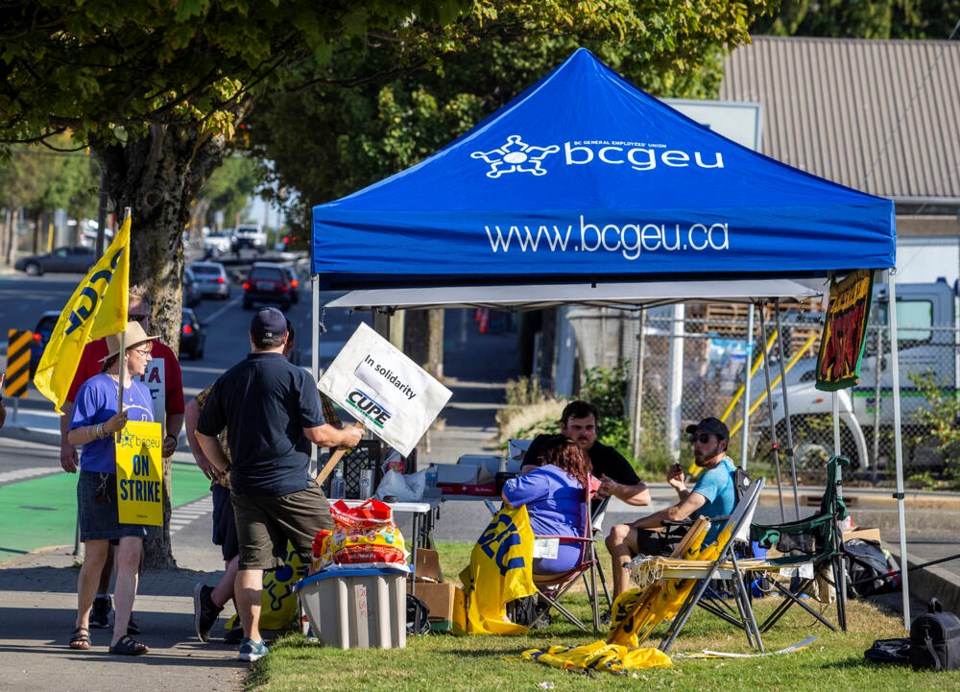The provincial government and B.C. General Employees’ Union are set to head back to the negotiating table as the strike that has forced liquor-rationing enters its second week.
The BCGEU said the Public Service Agency invited the union’s bargaining committee back to the table late Monday to resume talks in what the union called “a significant development.” The bargaining committee accepted the invitation but a date has not been set.
Job action will continue until further notice, the BCGEU said, to keep pressure on the government. The two sides agreed to a media blackout so no information on the bargaining progress will be released.
The union, which represents 33,000 provincial government workers, is in its second week of targeted strike action, with 950 liquor distribution and wholesale workers picketing. That means no liquor or cannabis products are being distributed to B.C. businesses, which could cause supply issues for bars, restaurants and cannabis storefronts.
The Liquor Distribution Board on Friday announced “modest” limits on how much liquor customers can buy at government-run retailers.
Pubs, bars and private liquor stores expect to start experiencing significant liquor shortages by the middle of this week, according to the Alliance of Beverage Licensees in B.C.
The group’s executive director, Jeff Guignard, implored the two sides to get back to the bargaining table, saying the strike action is holding a $15-billion industry, thousands of small businesses and tens of thousands of workers hostage.
The union escalated its job action Monday with a ban on non-emergency overtime for public-sector workers. The overtime ban excludes members of the B.C. Wildfire Service.
The BCGEU’s bargaining team rejected the Public Service Agency’s most recent offer of a 10.99 per cent pay hike over three years plus a one per cent cost-of-living adjustment. Employees would also get a $2,500 signing bonus.
Jobs Minister Ravi Kahlon said last week that’s the most generous offer in at least 30 years. The government says the proposal is much more than what’s being offered to public-sector employees in Alberta and Ontario.
BCGEU president Stephanie Smith wouldn’t give specifics on what the union is asking for other than stressing that members should get cost-of-living adjustments that reflect a drastically increased cost of living due to inflation.
— With files from Gordon Hoekstra
— With files from Gordon Hoekstra



